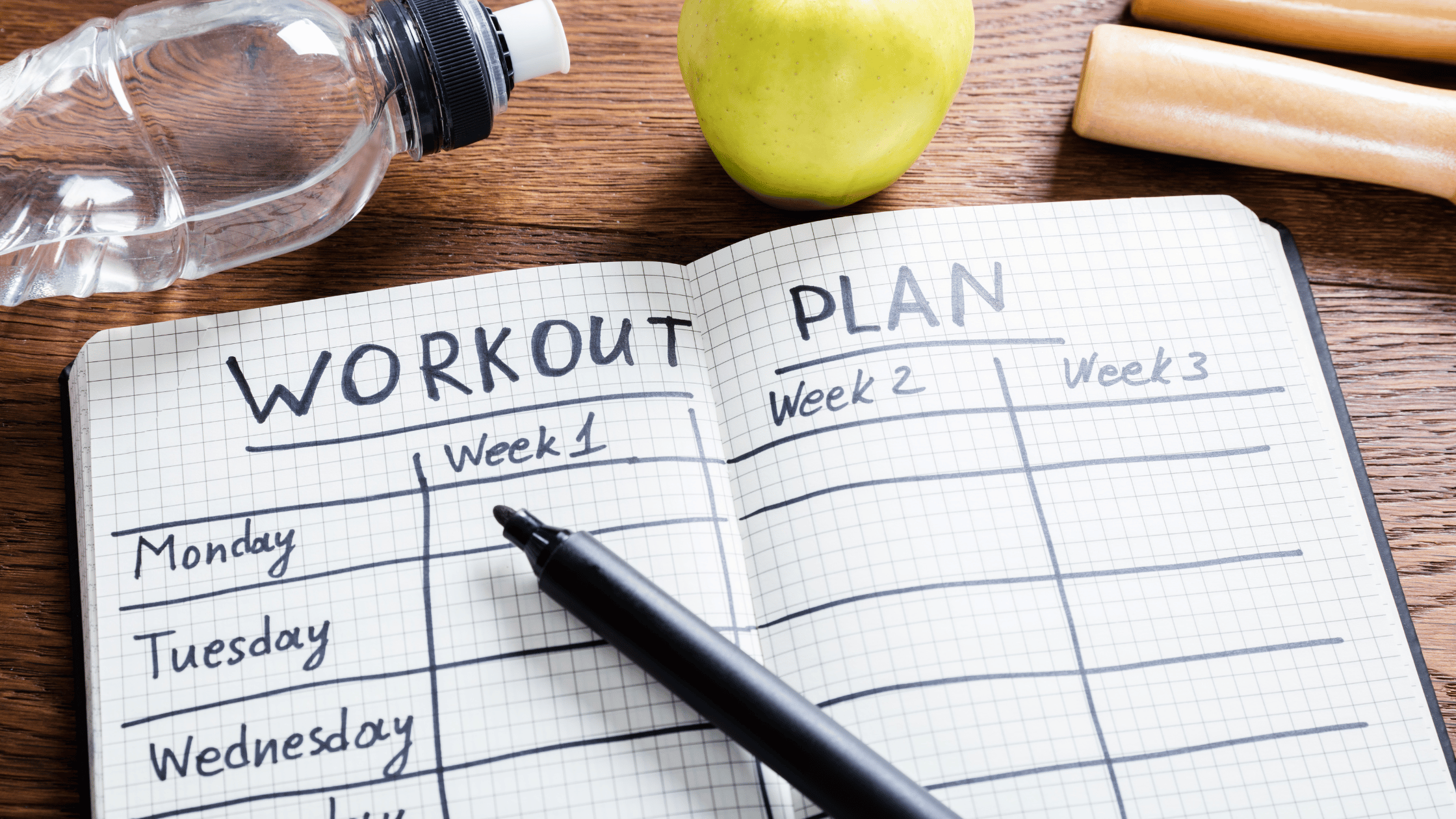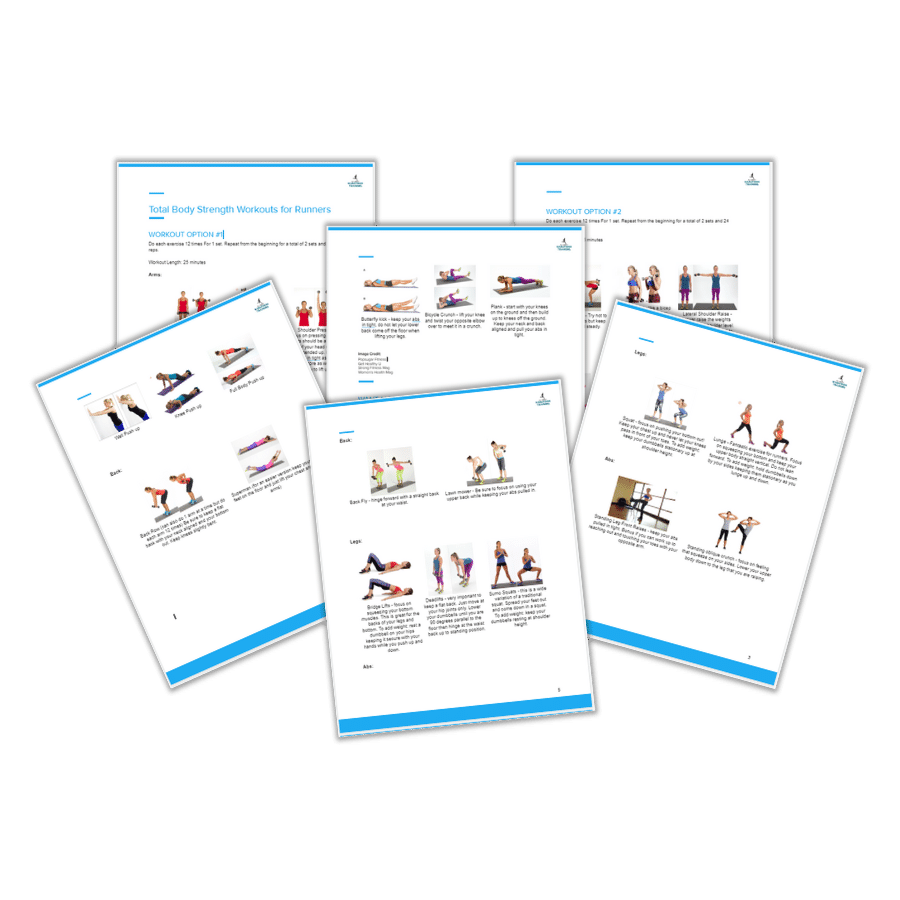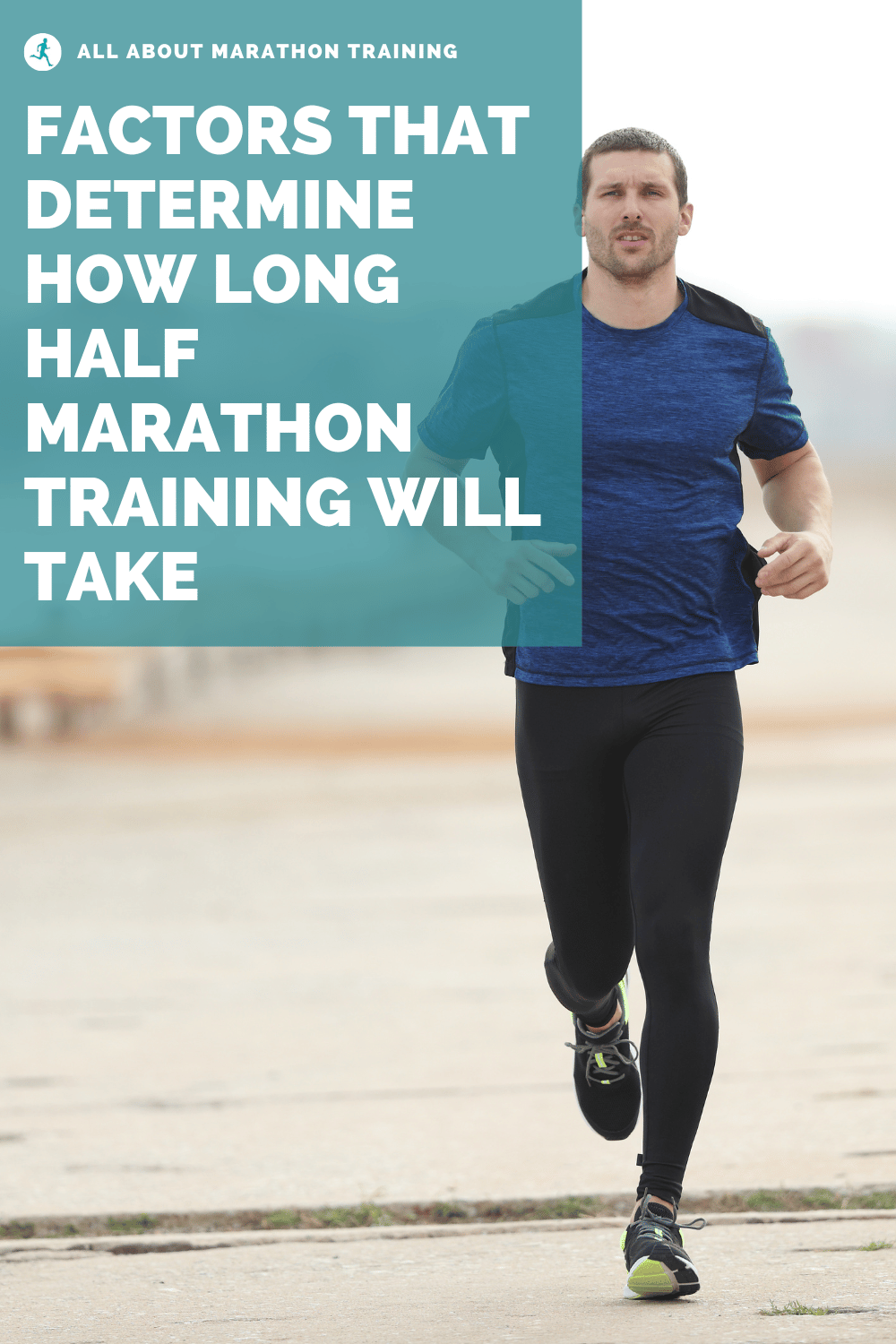Training For a First Half Marathon Takes How Long?
So you’ve decided to go the extra miles and run a half marathon! Good for you - great decision!
Your enthusiasm and determination is at its peak and you want to get going. But… First things first.
Training for a half marathon does take some planning.
The half marathon is a challenging distance that requires dedication, discipline and consistent training.
It is a popular race distance for both beginners and experienced runners that doesn’t require the time commitment of a full marathon.
With that said, do be aware that there is still a significant amount of training and commitment, and the question of how long it takes to train for a half marathon is a common one among aspiring runners.
Rashly jumping right in can cause discouragement when injuries sprout from not properly strengthening muscles.
Frustrations can also occur when burning out from being too eager and not having a solid plan.
Race day, from the start line to the finish line and beyond, can be such a positive experience if you’re well prepared. -
Or, it can be uncomfortable and down-right painful if you don’t give yourself enough time to adequately build strength and endurance.
Keep reading to know just how long it will take to be well prepared come race day.
Factors That Determine How Long Training Will Take:
The number 1 factor: Your current fitness level.
Starting from square one and getting to the starting line of a half marathon race, won’t happen overnight.
You have to be realistic and realize a decent amount of time will be necessary to adequately prepare.
Of course, if you have already been running somewhat, more than likely you will be able to lessen the overall preparation time.

Current runner?
Making the transition from running shorter distances to completing a half marathon will be a briefer process than for someone who has never run, obviously.
When first starting to run, the first phase of running is an introductory period that creates a foundation and sets you up to run longer distances.
This initial base training phase varies for runners and can be shortened or even eliminated depending on your level of endurance.
Here is a beginner runner's plan to help you go from walking to running 30 minutes without stopping.
In this Quick Win Toolbox, I show you how to find your current running fitness level!

Your half marathon goals
Are you trying to cross the finish line at a certain time? Or is the goal to just get there?
Running to meet a certain time might mean a longer preparation period is necessary.
Trying to run at a pace that will enable you to meet your goal will mean more time must be given to build stamina, increase muscle strength and improve endurance.
If you do want to increase your speed, I’m here to help with that too. Here’s an article about speed training.
Here is how to find a great half marathon pace for you!

Your age
As we all know, aging comes with physical decline of varying degrees.
Our joints become a little stiffer, our muscles a little weaker and our stamina just isn’t what it used to be.
Those of you who have been doing some sort of exercising all along won’t notice this physical shift as much as those who haven’t.
Don’t let the fact that you’re not in your prime stop you.
You don’t have to be a spring chicken to run your first half marathon. There are many stories of folks in their second half of life who have successfully run the half marathon distance for the first time.
Just make sure to take your age into consideration when trying to determine how long to allow for training. Tacking on a couple of weeks (or even several) is not a big deal.
Here is a breakdown on average half marathon finish times for different age groups.

Your life obligations
Super crazy busy?
You might have to spread out your training a little to be able to build endurance. That’s okay!
It’s important to set realistic goals to avoid having to cram in training sessions because of hecticness. You don’t want your running program to become a source of frustration.
Good news though: That's why I built this site! To be able to offer simple training plans that fit with busy lifestyles! Shop training plans here.

How Long to Train
Basic Components of a Half Marathon Training Plan
In general, most runners can plan on 12 weeks (3 months) to prepare for a half marathon race. To dial in on what it might take you, keep reading…
As many of you know, training for your first half marathon isn’t just about hard running.
To gradually build endurance, your weekly mileage will include a variation of the following:
- easy runs,
- a weekly long run,
- shorter distances,
- recovery runs,
- cross training,
- strength training, and
- a much needed rest day (or two)
Throw in two weeks or so of tapering before your race (gradually reducing the number of runs) and you have the gist of your half marathon plan.
All of these factors contribute to the overall length.
More experienced runners who want to enhance their race performance will also want to include workouts that get that heart rate up even more.
This includes speed work such as tempo runs, interval training and fartlek workouts - all of which aim to increase stamina and strength.

New Runners - Meaning Currently You’re Pretty Much Not Very Active
If you’re a complete beginner, it’s recommended that you first focus on building a base level of fitness through a combination of walking, jogging and even some strength training, before starting a half marathon training program.
This easy paced base training is the framework for future workouts to help you avoid injury and build up the necessary endurance to run long distances.
The length of time you commit to base training depends on - guess what? - your current fitness level. Most new beginner runners generally need a minimum of one month although this initial training could take up to three months.
Starting with a clean slate means you should allow anywhere from 12 to 16 weeks to prepare.

Runners at Various Levels - Meaning You’re at a Decent Fitness Level
The overall time for training for all runners will really hinge on your answers to the above determining factors with, again, the largest deciding element being your physical fitness level.
If you are a beginner runner and have your base training out of the way and just want to cross the finish line without high expectations of a certain time, you could complete training in as little as 8 weeks.
To not rush your training or to achieve a certain pace, expecting 10 to 12 weeks to prepare is more realistic.
Intermediate runners to advanced runners who find that most of the conditions mentioned above align, could knock out training in as little as 6 weeks and up to 10 weeks.
Here is a 6 Week Half Marathon Challenge that you might be up for!
It won’t be necessary to take the time to be at a baseline level as you already are. (Although, with that said, base training isn’t just for a new runner. It can be beneficial even for an experienced runner who has taken a break from running or for runners who are trying to train at higher levels.)
Now, if you are trying to set a personal record, tack on a few extra weeks to build stamina and endurance.
To narrow in more on a time frame, experienced runners can assess their degree of fitness by determining their current pace and endurance levels.
A good way to do this is by running a timed 5K or 10K race and using the finishing time to estimate the current fitness level. This provides a good starting point to build from and helps determine how long is needed to train for a half marathon.
Related: How long does it take to train for a half marathon?

Picking Your Half Marathon Training Plan
Choose a training plan that meshes with your goals
It’s important to choose the right training plan that fits your current fitness level and goals.
Those who are completely new to running should look for a plan that gradually builds up mileage and includes plenty of rest and recovery time - so considering a 16 week plan is suggested.
Beginner runners who have already built their foundation should target plans that are anywhere from 8 to 12 weeks long.
You can find all the half marathon training plans that I offer on this website, on this page.
Intermediate runners and advanced runners who aren’t concerned about setting a time record can consider plans that complete the training in 6 to 10 weeks.
This time frame is also good for this running group if you’re limited on time.
Experienced runners who are up for the challenge of increasing performance may want to look for a plan that incorporates more intense workouts and higher mileage.
This means training for a longer duration might be necessary. By the way, there’s nothing wrong with modifying the intensity of any plan if you find it too difficult or too easy.
The plan can serve as your solid, structured “manual” so you don’t have to figure things out at all, or it can just provide guidance that you build from.
Determine the length of your training
Of course the first thing to be determined is the race date that works for you and then work backwards to the current date or the date you can start training.
Count the weeks to make sure you have adequate time for training according to your running experience and hence, physical capabilities.
A variety of plans are included below that correspond with the number of weeks you need for training. These plans can be tweaked according to your foreseen obligations and objectives.
Keep in mind it’s wise to add in some cushion for those unforeseen life happenings. -But at the same time, realize you don’t want your training to drag on too long or you risk not being in peak condition for your race.
Prolonging your training also has the potential of mentally affecting your goal. It’s all too easy to continually put training on the back burner.

Half Marathon Training Plans
- 6 Week Half Marathon Plan - This plan is for those runners who have some level of fitness and just want to get to the finish line of a half marathon.
- 8 Week Half Marathon Plan - a 2 month plan perfect for most levels of runners.
- 12 Week Half Marathon Plan - A great paced plan for anyone!
- 16 Week Half Marathon Walking Program - Not quite ready to run a half marathon? This plan is a great way to test the waters - or should I say, “the pavement”!

Advanced Runners
Advanced runners can choose one of the above or make it more challenging by doing the following:
- Choose the 12 Week Half Marathon Program.
- Add Hill Training into weeks 4-6.
- Add Speed Training into weeks 7-12.
The combined hill training and speed training will get you ready to go for a time goal.

In Summary
I have no doubt you are capable of completing your first half marathon.
So put on those running shoes, be realistic of your goals and capabilities, stay focused and motivated, and persevere!
Your weeks of training for that big day will so pay off! You’ve got this!
Here’s more helpful info to get you started:
- This Tips for how to Recover after Running a Half Marathon post will come in handy when you’re all done.
- If you’re still on the fence about actually making the commitment to run a half marathon, check out this post to see if you’re ready.
- Maybe you want to start accumulating half marathon medals slowly by power walking your first one. This is a great guide.
- For further motivation, there’s more half marathon training info here.
Related Pages:
👋Sign up to receive the free printable strength exercises for runners: 👇
 |
Your second block of text...
As featured on:










New! Comments
Have your say about what you just read! Leave me a comment in the box below.